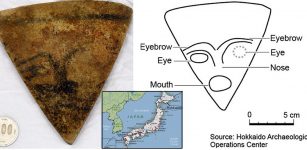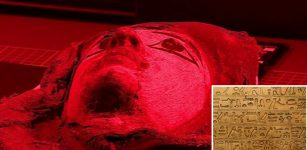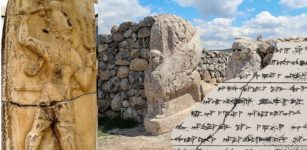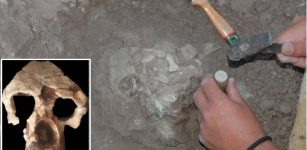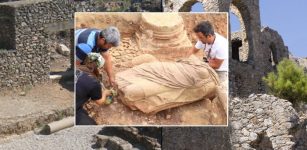Oldest Case of Decapitation In the New World – Lapa do Santo, East-Central Brazil
AncientPages.com - An international team of researchers led by André Strauss of the Max Planck Institute for Evolutionary Anthropology in Leipzig, Germany, presents evidence for a 9,000 year-old case of human decapitation that has been found in the rock shelter of Lapa do Santo in east-central Brazil in 2007.
Lapa do Santo, located in east-central Brazil, contains evidence of human occupation dating back to ~12,000 years ago.
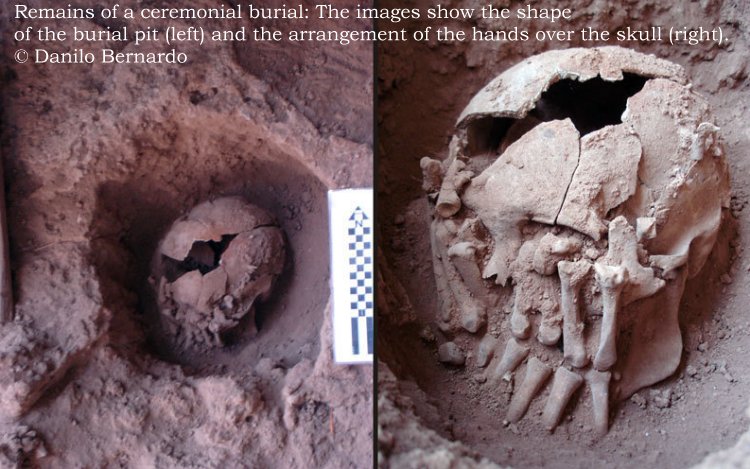
Remains of a ceremonial burial: The images show the shape of the burial pit (left) and the arrangement of the hands over the skull (right). © Danilo Bernardo
Apparently this kind of practice is much older than previously thought and not restricted to the western fringe of the continent.
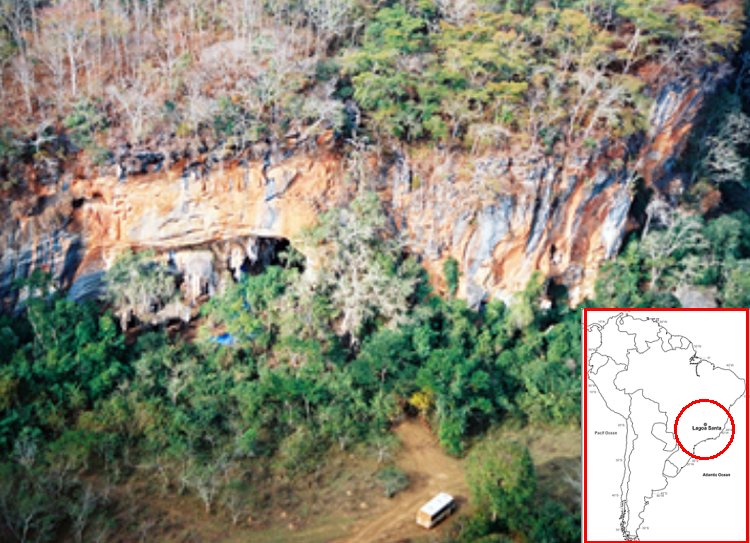
Aerial view of the massif in which the rock shelter is located; doi:10.1371/journal.pone.0137456.g007
In 2007, fragments of buried body including cranium, jaw, the first six cervical vertebrae, two amputated hands and v-shaped cut marks on the jaw and sixth cervical vertebra were discovered at the site in Burial 26.
Researchers dated the remains back to approximately 9,000 years ago using accelerator mass spectrometry.
The right hand laid over the left side if the face with finger bones pointing to the chin.
The left hand laid over the right side of the face with distal phalanges (finger bones) pointing to the forehead.
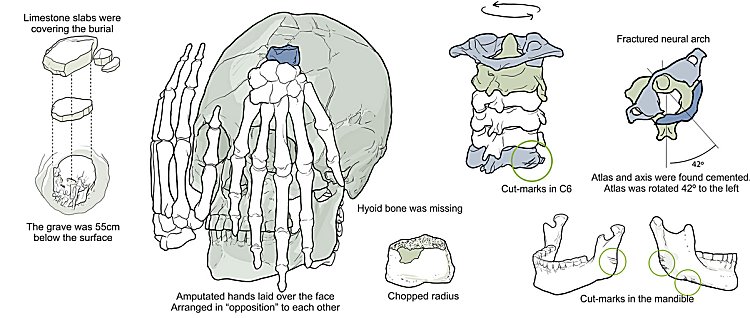
Schematic representation of Burial 26 from Lapa do Santo. Drawing by Gil Tokyo. doi:10.1371/journal.pone.0137456.g005
Researchers suggest a ritualized decapitation of the body that indicates the sophistication of mortuary rituals among hunter-gatherers in the Americas during the early Archaic period.
In the apparent absence of wealth goods or elaborated architecture, Lapa do Santo’s inhabitants seemed to use the human body to express their cosmological principles regarding death.
AncientPages.com
source: PLOS ONE




